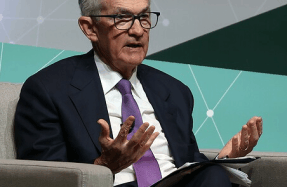As COVID spread in federal prisons, many at-risk inmates tried and failed to get out

In a federal prison in Springfield, Mo., Waylon Young Bird quietly wrote a letter to a federal judge.
"Greetings sir, just a quick letter concerning the pandemic of the coronavirus," Young Bird wrote. "Many of us are at high risk of getting this virus because of our health conditions, the overcrowding conditions here and the uncleanliness of this prison medical center."
It was March 15, 2020. That day, New York City announced it was shutting down its public schools, Dr. Anthony Fauci went on network television to prepare Americans to "hunker down significantly," and states began closing their bars and restaurants. It was beginning to dawn on many people that something life-altering was already happening. And it was dawning on Young Bird too.
He had been in the Medical Center for Federal Prisoners in Springfield since the previous September, sentenced to 11 years for charges related to dealing methamphetamine. On April 5, 2020, he wrote again.
"If given the chance I will prove I can stay out of trouble and follow the rules and conditions set for me," Young Bird wrote to Chief Judge Roberto Lange of the U.S. District Court for the District of South Dakota, where he was sentenced. "I'm not a bad person. I just made a few bad decisions in my life."
Young Bird was in his early 50s and, among other conditions, had late-stage kidney disease, for which he required dialysis. He wrote to the court April 8, asking to be released from prison. By then, the coronavirus was spreading rapidly throughout the country.
"Once a guard or staff member brings it in here, it will spread," he wrote again April 19, this time to the 8th U.S. Circuit Court of Appeals.
Young Bird was trying to secure an avenue out of prison faster than the virus could spread.
Over the past two years, thousands of other federal inmates argued the same grim position, trying to use an established process to petition for release before their time in prison effectively became a death sentence.
Many of them ultimately lost. Eventually, Young Bird would too.
As of early March, officials at the Federal Bureau of Prisons (BOP) say 287 federal inmates have died from COVID-19, a count that does not include deaths in privately managed prisons. Bureau officials have been saying since the beginning of the pandemic that they have a plan to keep the situation under control, but an NPR analysis of federal prison death records suggests a far different story.
The federal prison system has seen a significant rise in deaths during the pandemic years. In 2020, the death rate in prisons run by the BOP was 50% higher than the five years before the pandemic. Last year, it was 20% higher, according to the NPR analysis of age-adjusted death rates.
Of those who died from COVID-19, nearly all were elderly or had a medical condition that put them at a higher risk of dying from the virus, NPR found. Many of them seemed to sense their fate — and had tried to get out. And those who made their case in court often faced a slow and
You’re reading a preview, subscribe to read more.
Start your free 30 days



